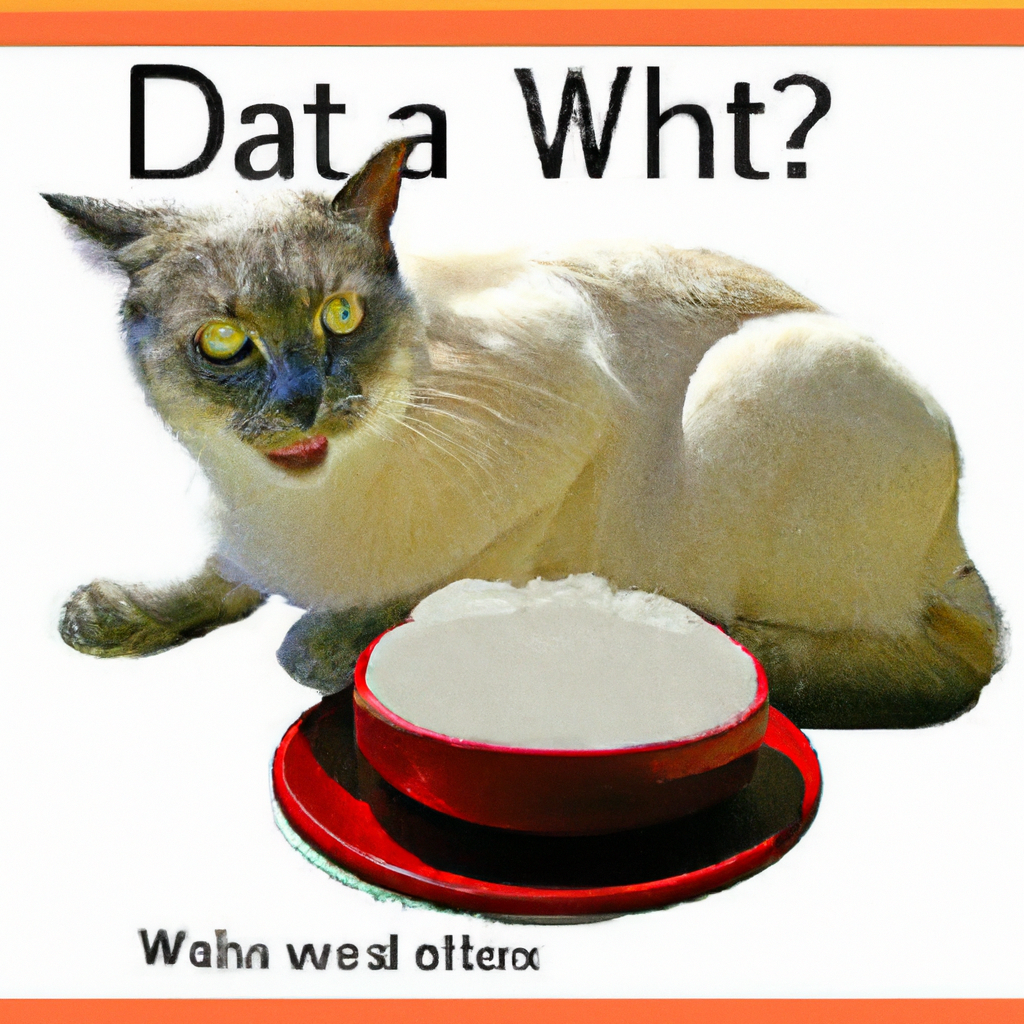Are you curious about what your feline friend should be gobbling up each day? If so, you’ve come to the right place! In this article, we’ll explore the wide world of cat nutrition and uncover the ideal diet for your beloved pet. From protein-packed meals to mysterious preferences like tuna and catnip, discover the range of foods that cats can devour and ensure your furry companion stays healthy and satisfied. So, let’s get started and uncover the answer to the age-old question, “What do cats eat?
What Do Cats Eat
Cats are adorable and lovable pets that bring joy and companionship to our lives. As responsible cat owners, it is essential to provide them with a proper diet that meets their nutritional needs. While it may be tempting to share your human food with your feline friend, it is important to understand what cats should and should not eat. In this comprehensive article, we will dive into the world of cat nutrition, exploring their natural diet, the differences between commercial cat food and homemade diets, the essential nutrients they require, common human foods to avoid, and special diets for specific life stages or health conditions.
Cats’ Natural Diet
To understand what cats should eat, it is crucial to recognize their evolutionary background. Cats are obligate carnivores, meaning their bodies are designed for a diet primarily consisting of meat. In the wild, their natural prey animals include birds, rodents, and small mammals. These prey animals not only provide cats with the necessary nutrients they need but also fulfill their hunting instincts.
Commercial Cat Food vs. Homemade Diet
When it comes to feeding your cat, you have two main options: commercial cat food or a homemade diet. Commercial cat food offers convenience and complete nutrition, as it is specifically formulated to meet the dietary requirements of cats. On the other hand, a homemade diet allows you to have more control over the ingredients and may cater to specific dietary preferences or restrictions. Let’s explore the benefits and drawbacks of each.


Essential Nutrients for Cats
Regardless of whether you choose commercial cat food or a homemade diet, it is crucial to ensure that your cat receives all the essential nutrients they need to thrive. These nutrients include protein, carbohydrates, fat, vitamins, minerals, and water. Let’s take a closer look at each of these components and their significance in a cat’s diet.
Protein
Protein is an essential nutrient for cats as it supports various bodily functions, including muscle development, tissue repair, and immune system functioning. Cats require a diet rich in high-quality animal protein to meet their specific needs. Unlike humans, cats are unable to efficiently break down and utilize plant-based proteins. Thus, it is important to provide them with animal-based protein sources such as meat, fish, and poultry.


Carbohydrates
While cats are obligate carnivores, their need for carbohydrates is limited compared to other mammals. In the wild, cats obtain carbohydrates indirectly from the stomach contents and small amounts of plant matter consumed by their prey. However, carbohydrates can still have benefits in cat food, such as providing a source of energy. When choosing a cat food, opt for high-quality carbohydrates like whole grains or vegetables.
Fat
Fat serves as a concentrated source of energy for cats and is crucial for the absorption of fat-soluble vitamins. It also adds flavor to their diet and helps maintain healthy skin and coat. When selecting fat sources for your cat, look for healthy fats such as those found in animal fat or plant-based oils.
Vitamins and Minerals
Vitamins and minerals play important roles in maintaining optimal health for cats. While commercial cat food typically contains a balanced mix of essential vitamins and minerals, homemade diets may require supplementation to ensure adequacy. Important vitamins for cats include vitamin A, vitamin D, and various B vitamins. Similarly, essential minerals for cats include calcium, phosphorus, and potassium.
Water
Water is vital for all living beings, and cats are no exception. It is necessary for digestion, circulation, and the overall functioning of their body systems. Cats have a relatively low thirst drive, which can be traced back to their desert-dwelling ancestors. However, it is essential to ensure they have a constant supply of fresh, clean water to promote hydration and prevent urinary issues.
Common Human Foods Cats Should Not Eat
While it may be tempting to share your favorite foods with your feline companion, it is important to be aware of common human foods that are toxic or harmful to cats. Some examples include chocolate, onions, garlic, grapes, and alcohol. These foods can cause various health issues, ranging from gastrointestinal upset to organ failure. It is best to stick to cat-specific food and treats to ensure their safety and well-being.
Special Diets for Cats
In addition to considering their natural diet and essential nutrients, it is important to cater to the specific needs of cats based on their life stage or health conditions. Special diets are available to address different requirements, including kitten food, senior cat food, weight management diets, and medical diets. These diets are formulated to provide the necessary nutrients while addressing particular health concerns, such as supporting growth, promoting joint health, or managing diabetes.
Providing your cat with a well-balanced and appropriate diet is essential for their overall health and well-being. Understanding their natural diet, the differences between commercial cat food and homemade diets, and the essential nutrients they require can guide you in making the best decision for your feline friend. Remember to consult with your veterinarian for personalized dietary recommendations based on your cat’s specific needs and preferences. With a proper diet, your cat will lead a happy and healthy life by your side.

